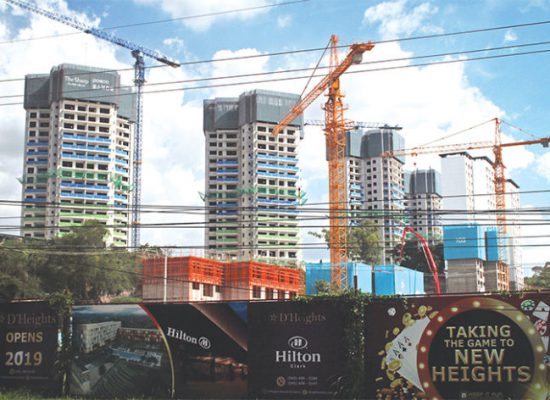By Elijah Felice Rosales, June 3 2019; Business Mirror
https://businessmirror.com.ph/2019/06/03/peza-investments-dip-24-5-in-jan-april-19/
Image Credit to Business Mirror
ECONOMIC zones developed slower in the first four months of the year, as investments applied to the Philippine Economic Zone Authority (Peza) slumped nearly 25 percent on stalled expansions and new projects.
Investments registered with the Peza from January to April declined 24.54 percent to P29.49 billion, from P39.08 billion during the same period last year. This translated to 159 new projects, two less from the prior year’s 161.
In spite of slower investment activities in economic zones, exports of locators as of March slightly improved 0.59 percent to $12.94 billion, from $12.86 billion.
Further, new projects in the information-technology industry in the four-month period amounted to P4.63 billion, down 7.08 percent from P4.98 billion during the same stretch last year. In spite of this, exports of IT firms as of March grew 6.75 percent to $3.07 billion, from $2.87 billion.
Peza Promotions and Public Relations Group Manager Elmer H. San Pascual said the investment body cannot yet persuade economic zone firms to expand, as they are still bracing for the possibility—though slim, according to most Congress sources —that the government’s rationalization plan for tax incentives, which they oppose, may happen in the last few session days of the 17th Congress.
Locators have put on hold new projects and expansion plans in anticipation of a change in the country’s corporate tax and incentives regime. Finance officials are making a push to lower corporate income tax and rationalize tax incentives under the Tax Reform for Attracting Better and High-Quality Opportunities bill. If approved, the Trabaho bill will gradually reduce corporate tax to 20 percent by 2029, from 30 percent, and introduce a new menu of incentives for investors.
Locators, mostly multinationals, oppose the component on incentives rationalization. They said they might relocate to another Southeast Asian competitor with more competitive incentives if the government lifts their existing tax perks, particularly the 5-percent tax on gross income in lieu of all local and national taxes.
This presents a threat not only to the country’s investment climate, but also to the employment of millions of Filipinos working in economic zones.
“For those new ones that we had serviced, while on their due diligence, [they] have been impressed [with] what they have seen in our economic zones and the ease of doing business in the Peza. However, their final question to us is: will there be a change in your incentives?” San Pascual disclosed in a text message to reporters.
Economic zone firms directly employ 1.48 million workers as of March, according to the Peza. Last year investments applied to the Peza crashed 40.97 percent to P140.24 billion, from P237.57 billion in 2017. Peza Director General Charito B. Plaza had attributed the double-digit decline to the uncertainties brought about by the Trabaho bill.

